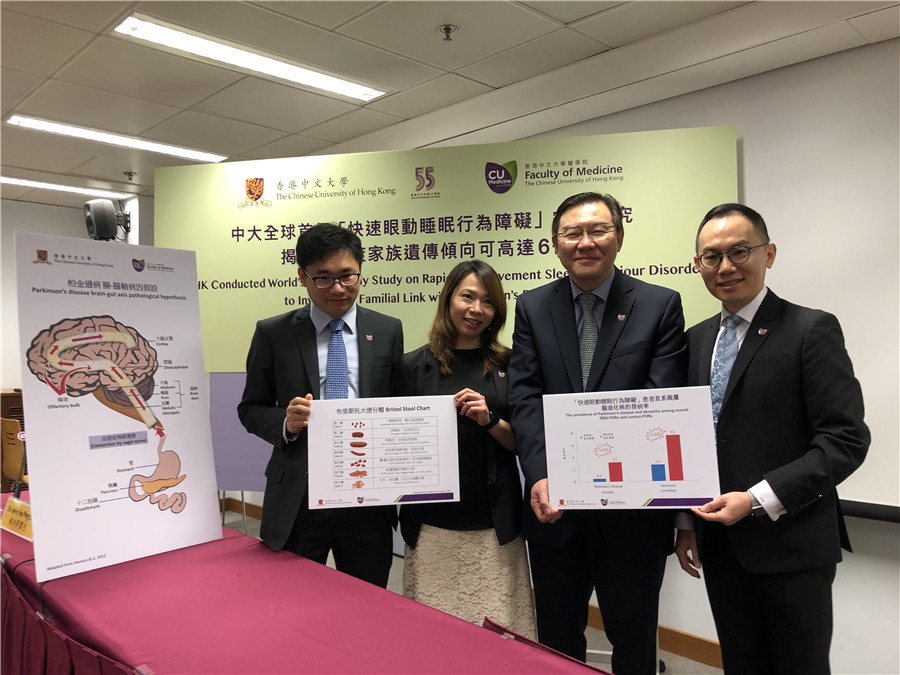Familial link for Parkinson's disease discovered


Family study
The research conducted by Wing and his team is the first RBD family study to systematically investigate links with first-degree relatives to Parkinson's disease and other neurodegenerative conditions.
Traditionally, scientists have not considered Parkinson's disease to be hereditary, and studies show that only about 10 percent of people with the disease have a family history of the condition.
However, Wing's study has confirmed that RBD has significant familial connections, which is indirect proof of the inheritability of Parkinson's disease, said Zhang Jihui, assistant professor at CUHK's Department of Psychiatry.
In the study, scientists also found that even people without clinical symptoms of RBD displayed significantly more signs of neurodegeneration, such as constipation (defined as a frequency of less than twice a week) and subtle motor dysfunction.
"Parkinson's disease is a multisystem problem. The microbiome (microbes) in the gut may be the root of it. Constipation could be considered a preclinical symptom of RBD. It could take 20 years to proceed to Parkinson's disease," Wing said.
Neurodegenerative diseases are generally diagnosed according to clinical symptoms.
The pathology leading to the disease, however, may have started 10 years or more before the presence of significant clinical symptoms. Above all, the damage to the brain is likely to become significant and irreversible.
Even though researchers have yet to discover procedures that will slow neurodegeneration, they now have a direction to follow for more studies.
"If we can start screening high-risk individuals with RBD or other markers related to neurodegenerative diseases, we may be able to intervene at an early stage of neurodegeneration," Mok said.
- 4th TCTCP established: boosting standards for tropical agriculture
- Quzhou emerges as a cultural and tourism destination
- Shanghai sees surge in international arrivals
- Former Moutai chairman under investigation for misconduct
- Shanghai railway staff becomes popular with rapid typing, spoken English
- Giant pandas celebrate first year in Chongqing with snowy spectacle





































